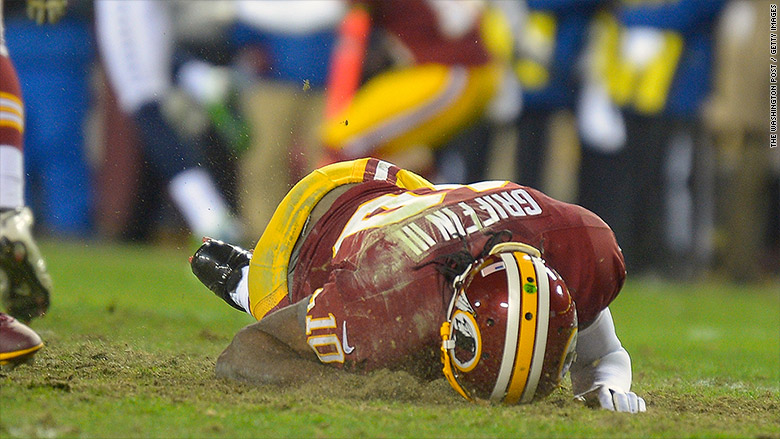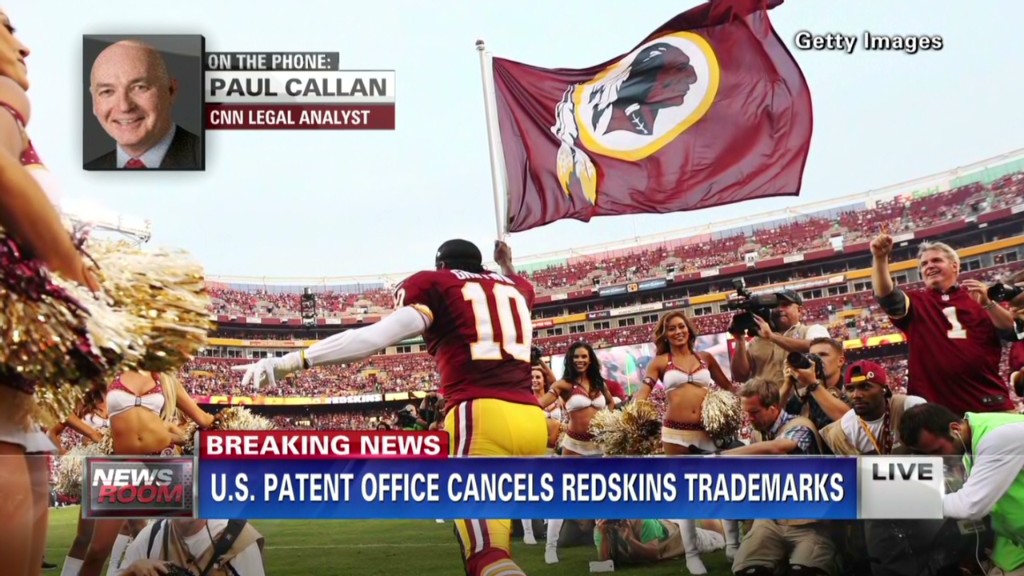
Earlier this year, the Washington Redskins exercised an option to sign quarterback Robert Griffin III for the 2016 season.
And in the upside down world of NFL contracts, that move essentially ensured that he'd be benched or cut in 2015.
Here's why it works out that way: The $16.2 million for 2016 is not guaranteed -- unless the injury-prone RG3 gets injured. No injury, and the Redskins can cut him loose. Riding the bench, of course, is the best way to keep him healthy.
For the 2015 season, he's guaranteed just $3.3 million.
"The decision is probably entirely based on the money," said Michael Ginnitti, managing editor of Spotrac.com, which tracks professional sports contracts.
The RG3 contract debacle is particularly painful because of what the Redskins gave up to get him in the 2012 draft. The team traded three first round draft picks, as well a second-round pick. He got a $13.8 million signing bonus, and $7.3 million of salary for four years through this season.
Related: Court ruling puts Redskins' trademark at risk
At first, the aggressive move paid off. RG3 was the league's best offensive rookie, leading the team to its first division title since 1999.
But he was injured in a playoff game, and neither he nor the team have been the same since. The Redskins have finished last in both seasons since.
Ginnitti said the Redskins' handling of the draft and contract is arguably the biggest blunder in NFL history.
"The QB is such an important position that when you swing and miss on someone you've given up so much to get, it's just devastating," he said.

At the moment, RG3 is getting over a concussion and can't play. But he is expected to be cleared from that injury soon, and will likely then be cut by the team. At that point, he'll be a free agent and able to sign a new deal that doesn't guarantee a big payout for 2016.
Related: Redskins merchandise gets stiff-armed by fans
Avoiding this problem would have been simple, according to Ginnitti: All the Redskins had to do was not exercise the 2016 option.
If he had played well and they wanted to bring him back for 2016, they could have kept him from being a free agent through the use of the NFL's "franchise player" designation, which Ginnitti said would have cost the team about what the option year would have cost anyway. If the team decided he wasn't their best choice as quarterback, he then would have had some trade value. But with the $16.2 million option year exercised, no team would trade for him now.

